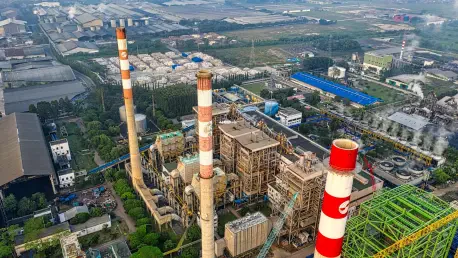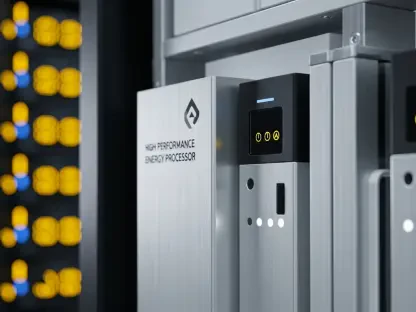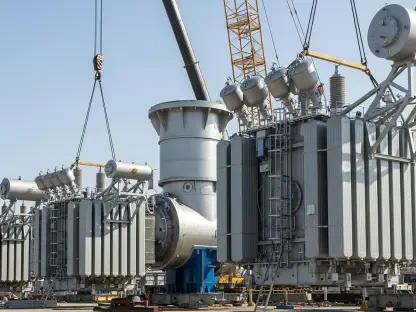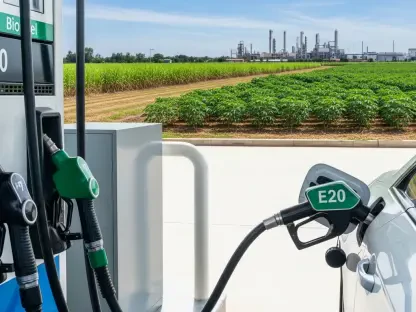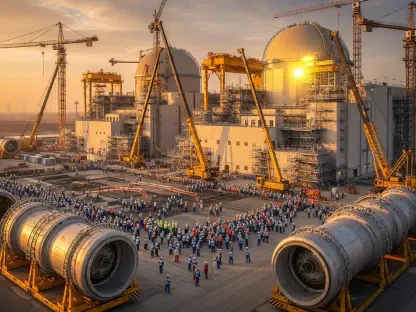Setting the Stage: Indonesia’s Fuel Market Under Pressure
Indonesia, an archipelago nation with a voracious appetite for fuel to sustain its sprawling economy, faces a critical challenge as private gas stations grapple with severe shortages. This crisis, driven by a surge in demand and eroding trust in state-supplied gasoline, has pushed the energy sector into uncharted territory. With millions of vehicles idling at empty pumps, the partnership between state-owned energy giant Pertamina and private retailer Vivo Energy Indonesia (Vivo) emerges as a potential turning point. This analysis aims to dissect the market dynamics fueling this shortage, evaluate the strategic collaboration between these key players, and project the trajectory of Indonesia’s fuel distribution landscape. The stakes are high, as resolving this issue could redefine energy security for one of Southeast Asia’s largest economies.
Diving Deep: Market Trends and Data Driving the Crisis
Unpacking Demand Surges and Quality Concerns
The Indonesian fuel market has witnessed a seismic shift in consumer behavior, with a marked preference for private retailers over state-controlled supplies. This pivot stems from widespread concerns over the quality of Pertamina’s gasoline, compounded by a government investigation that further dented public confidence. As a result, private stations operated by entities like Vivo, Shell, and BP-AKR have seen unprecedented foot traffic, stretching their limited inventories to the breaking point. Data from the energy ministry highlights a stark imbalance: Pertamina controls the lion’s share of fuel imports, leaving private players with constrained quotas that fail to match soaring demand. This mismatch underscores a critical market trend—consumers are prioritizing perceived reliability over availability, reshaping the competitive landscape.
Structural Imbalances in Fuel Distribution
Beyond immediate demand spikes, deeper structural issues plague Indonesia’s fuel supply chain. Pertamina’s near-monopoly on imports and distribution has historically marginalized private operators, creating a bottleneck when market conditions shift. The current crisis reveals how dependent private retailers are on state intervention, as their own supply networks lack the capacity to independently source fuel. Market analysis suggests that without addressing these systemic inequities, temporary fixes will only delay recurring shortages. Moreover, regional disparities in infrastructure exacerbate the problem, with urban centers facing acute scarcity while rural areas struggle with inconsistent delivery. These patterns indicate a market ripe for disruption, where policy and collaboration must align to restore balance.
Quantifying the Shortfall: Import Quotas and Allocations
A closer look at the numbers paints a clearer picture of the supply gap. Pertamina’s total import quota stands at 7.52 million kiloliters, with an estimated 571,000 kiloliters potentially earmarked for private retailers, according to energy ministry projections. While this allocation offers a lifeline, it represents only a fraction of the broader need. The recent import of 100,000 barrels (16,000 kiloliters) of gasoline by Pertamina Patra Niaga, of which Vivo secured 40,000 barrels, serves as a microcosm of the market’s immediate response. However, scaling such deals to encompass other players like Shell and BP-AKR remains uncertain, as their engagement in similar arrangements is yet to be confirmed. This data underscores a critical market tension: limited supply versus escalating demand, with state mechanisms acting as both gatekeeper and savior.
Strategic Moves: Analyzing the Pertamina-Vivo Partnership
A Tactical Import Agreement Under Scrutiny
At the heart of the current market response is the business-to-business deal between Pertamina Patra Niaga and Vivo, a collaboration designed to inject much-needed fuel into private stations. Vivo’s acquisition of 40,000 barrels from a 100,000-barrel cargo marks a pragmatic step toward easing shortages, yet it also highlights the dependency on Pertamina’s import capabilities. Market observers note that while this agreement provides short-term relief, it raises questions about the sustainability of such arrangements. Can private retailers build resilience without constant state support? The answer hinges on whether this partnership evolves into a blueprint for broader market participation or remains an isolated fix.
Quality Assurance as a Market Differentiator
Another pivotal aspect of this collaboration is the emphasis on transparency through quality and quantity testing. Both Pertamina and Vivo have engaged a mutual surveyor to ensure the imported gasoline adheres to national standards, addressing past consumer grievances over fuel reliability. This move not only bolsters trust among stakeholders but also positions quality assurance as a competitive edge in a skeptical market. Compared to earlier import practices with minimal oversight, this procedural safeguard could reshape consumer perceptions if adopted industry-wide. However, without systemic reforms to enforce consistent standards, such measures risk being perceived as stopgap solutions rather than transformative shifts.
Implications for Competitive Dynamics Among Retailers
The Pertamina-Vivo deal also illuminates disparities within the private retailer segment. While Vivo has secured a significant share of the imported fuel, the silence from competitors like Shell and BP-AKR suggests uneven access or ongoing negotiations. This dynamic hints at a fragmented market where strategic alliances with Pertamina could determine a retailer’s survival. Furthermore, regional variations in demand and logistical challenges complicate equitable distribution, potentially widening the gap between well-connected players and smaller operators. Market analysis indicates that fostering competition will require not just increased import quotas but also investments in supply chain infrastructure to level the playing field.
Forecasting the Future: Projections for Indonesia’s Fuel Sector
Policy Shifts and Market Liberalization Trends
Looking ahead, Indonesia’s fuel market stands poised for transformation, driven by evolving government policies. The energy ministry’s decision to permit greater fuel imports through Pertamina signals a move toward market liberalization, potentially encouraging private retailers to innovate in sourcing and distribution. Projections suggest that if import processes are streamlined over the next two years, from 2025 to 2027, private players could capture a larger market share, fostering competition. However, global fuel price volatility and regulatory complexities may temper this growth, requiring agile policy adjustments to maintain momentum. The trajectory points to a market where flexibility and state-private synergy will be key differentiators.
Technological Integration and Supply Chain Optimization
Emerging technological trends also offer a glimpse into the market’s future. Real-time supply tracking systems and data analytics could revolutionize how fuel is allocated, minimizing shortages by predicting demand spikes with precision. Adoption of such tools, though currently limited, is expected to accelerate as retailers seek to reduce reliance on manual processes. Market forecasts indicate that integrating technology with robust infrastructure investments could cut distribution inefficiencies by a significant margin within the next few years. Yet, the upfront costs and training requirements pose barriers, particularly for smaller operators, highlighting the need for targeted support to ensure widespread benefits.
Economic and Regulatory Challenges on the Horizon
On the economic front, rising global fuel prices present a persistent threat to market stability. Combined with domestic regulatory hurdles, such as stringent import licensing, these factors could constrain the affordability and availability of fuel for both retailers and consumers. Projections warn that without addressing foundational issues like fuel quality controls and infrastructure gaps, the market risks cyclical disruptions despite increased import quotas. A balanced approach—merging short-term supply boosts with long-term reforms—will be essential to safeguard against future crises. The market’s resilience will ultimately depend on how stakeholders navigate these intertwined economic and policy challenges.
Reflecting on the Past: Strategic Insights and Next Steps
Looking back, the analysis of Indonesia’s fuel supply crisis revealed a market strained by quality concerns, distribution inequities, and surging demand, with the Pertamina-Vivo partnership standing as a critical but limited response. The collaboration, while easing immediate shortages through targeted imports, exposed the fragility of private retailers’ supply chains and their reliance on state intervention. Market data underscored the vast gap between Pertamina’s import capacities and the needs of private operators, painting a picture of a sector in urgent need of structural reform.
As a forward-looking step, stakeholders adapted by prioritizing strategic alliances, as seen in Vivo’s deal, while pushing for transparency through quality testing. For private retailers, the path ahead involved investing in independent supply chain solutions to complement state support, alongside advocating for stricter industry-wide standards to rebuild consumer trust. Policymakers, on the other hand, focused on streamlining import regulations and addressing infrastructure bottlenecks to ensure equitable access across regions.
Beyond these measures, a broader consideration emerged: fostering a competitive yet collaborative market environment. Retailers and regulators alike recognized the value of integrating technology to optimize distribution and predict demand, setting the stage for a more resilient fuel sector. This crisis, though challenging, served as a catalyst for innovation, urging all players to rethink strategies and prioritize long-term energy security for Indonesia’s growing economy.
